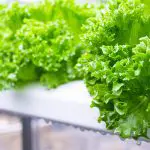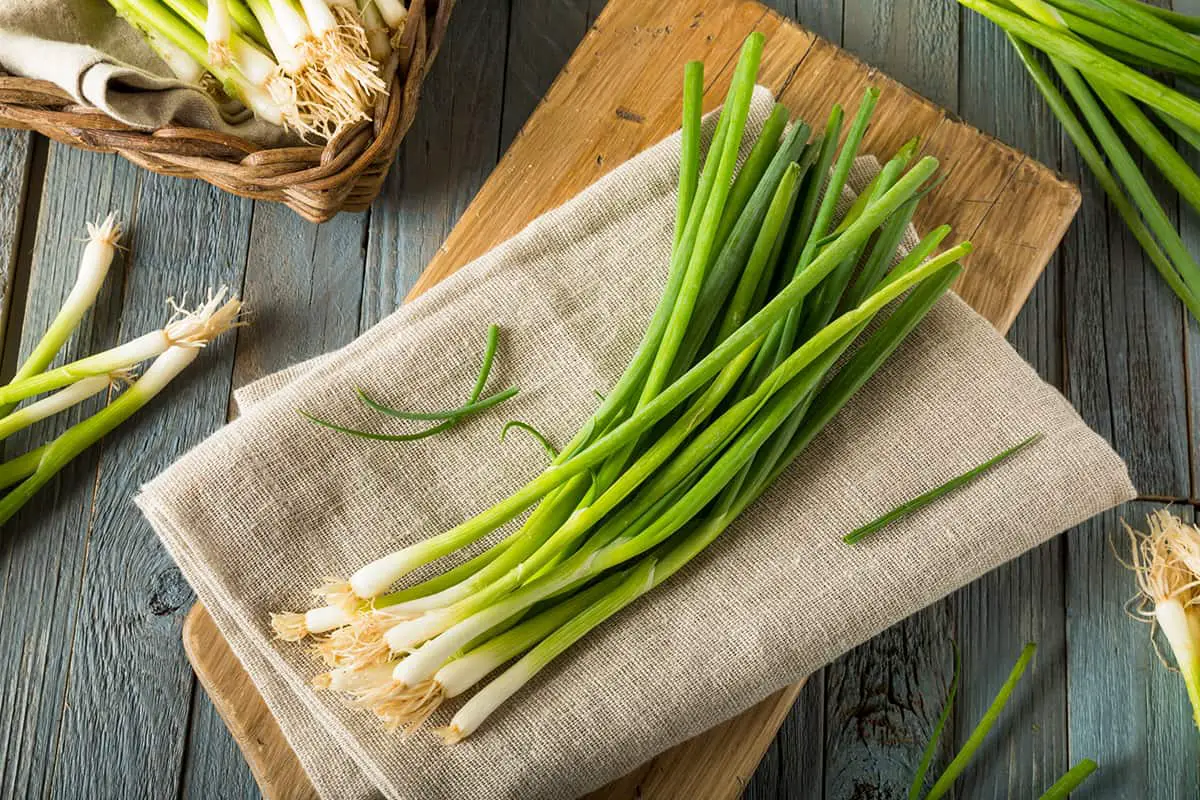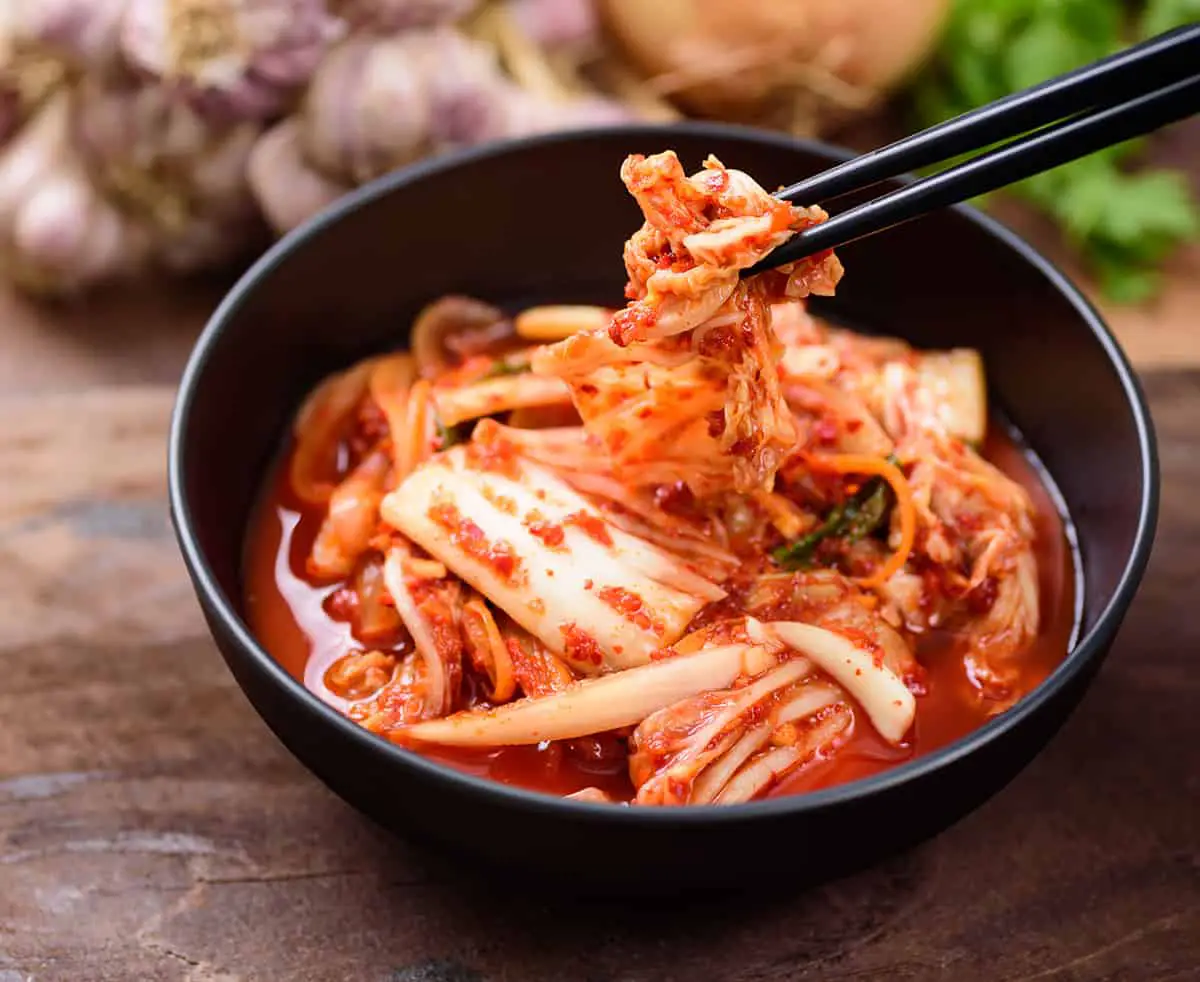5 Ways to Freeze Fresh Ginger (How-To & Benefits)
Fresh ginger has so many wonderful benefits that you’ll always want to have some around. Unfortunately, if you leave ginger root on your kitchen counter or in the refrigerator for an extended period of time it will dry out and lose its beneficial nutrients. This leads to the question, can you freeze fresh ginger for longer-term storage?
You can freeze ginger to make it last longer while preserving its nutrients and enabling you to always have some close at hand. Although it can last indefinitely, it’s recommended that you use up your frozen ginger within three to four months as the nutrients will naturally expire.
Freezing ginger will minimize waste and make food preparation quicker. In addition, many cooks claim frozen ginger is easier to work with and doesn’t need to be thawed to peel, slice, mince, and cook.
Please keep reading for more information about how to freeze ginger properly, ways to use it in your favorite dishes, and its many healthful benefits.
Freeze Ginger To Make It Last Longer
Freezing ginger is an excellent way to store it to make it last longer while keeping its oils and nutrients intact. Ginger boasts many health benefits that make it a valuable ingredient in your kitchen.
When not frozen, ginger will typically last on your kitchen counter for only a few days. However, freezing ginger helps you ensure it’s always available when you need it.
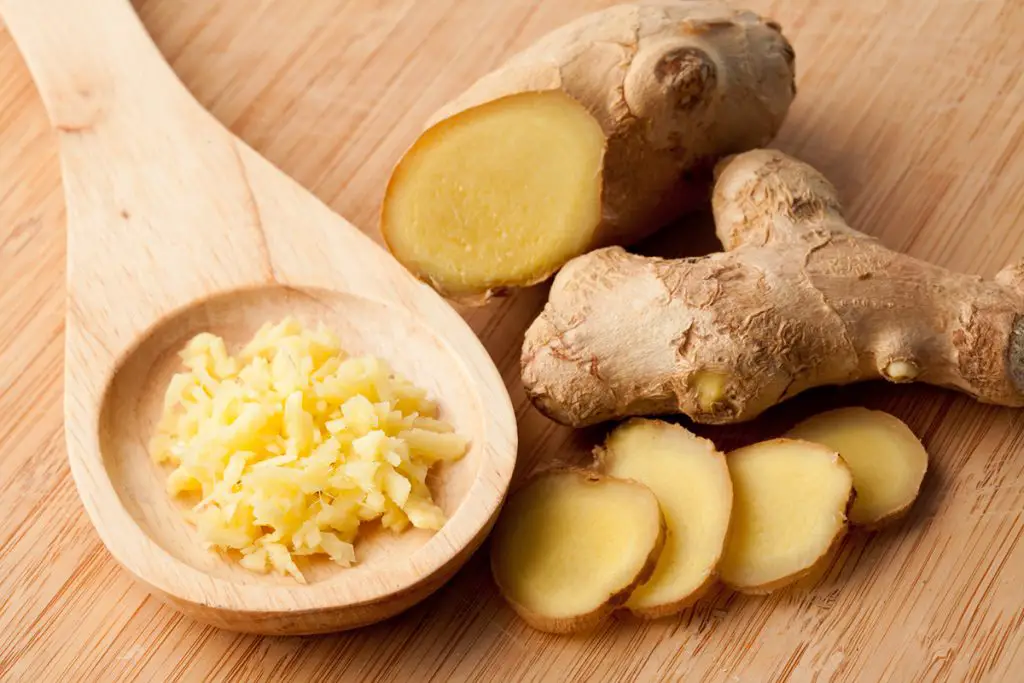
5 Ways To Freeze Ginger
Ginger can be frozen according to how you plan to use it and how convenient you want using your frozen ginger to be. Below are five different ways to freeze ginger:
- Freeze the whole ginger. When freezing whole ginger, you only need to pop it in a freezer bag, take out as much air as possible, and your ginger should last you a long time. And if you ever need to use it, you don’t need to thaw it before peeling, slicing, or mincing.
- Freeze ginger slices with the peel on. You need a freezer bag for this. Some people find this more ideal as you can just pick the slice you need instead of taking whole frozen ginger out for slicing.
- Freeze peeled ginger slices. You won’t even need to slice or peel frozen ginger stored this way. This method is ideal for people with busy lifestyles.
- Keep grated ginger in the freezer. Grating your ginger before storing it is a real-time-saver. However, preparation before freezing will take some effort. After grating the fresh ginger, divide the batch into teaspoon-sized portions on wax paper, cover with wax paper and flash freeze for 1 to 2 hours. Once frozen, peel them off the wax paper and place them in a freezer bag.
- Store pureed ginger in the freezer. Another way to go about it is to run your ginger through a food processor to make a paste. You can put this paste in silicone ice-cube trays. That way you can just pop out a single frozen ginger cube when you’re ready to use it.
Other Ways To Store Fresh Ginger
You can store ginger according to how and when you plan to use it. Below are different ways to store fresh ginger:
- Place the ginger on the countertop. If you plan to use up your ginger root within a few days, storing it on your counter, away from direct sunlight, should be enough.
- Keep it in the fridge. Ginger can last up to a month when unpeeled and stored correctly in the refrigerator’s crisper drawer. Make sure to keep it in resealable plastic or air-tight containers. Bear in mind that it won’t last as long when peeled and will only go as far as 2 to 3 weeks.
- Put the ginger in the freezer. Ginger can last for an indefinite amount of time in the freezer. All you need is to put your fresh ginger in a freezer bag, removing as much air as possible from the bag.
- Keep the ginger as pickles. You can keep pickled ginger for two months. You’ll need to peel then thinly slice your ginger and place it in a glass jar filled with equal parts vinegar, sugar, and water.
Culinary Uses of Ginger
Ginger is a favorite spice used in Asian as well as European cuisine. You can use fresh or dried ginger—either form provides great flavor and fragrance. So go on and add ginger to your dishes. You can use ginger in your food in multiple ways as follows:
- Whole unpeeled: You can submerge ginger in water to make soup or ginger tea and use it to flavor other cooking liquids.
- Pickled: You can use ginger as a condiment when pickled—usually used by, but not exclusive to, Japanese and Indian cultures.
- Minced: Ginger in this form is best for flavoring stir-fries, marinades, fried rice, etc.
- Smashed: You can usually smash ginger when preparing a base or paste and mix it with garlic.
Health Benefits of Ginger
Ginger (Zingiber officinale) is a spice native to Asia but is used by many different cultures for its medicinal and culinary benefits. Research has found that ginger has potent anti-inflammatory and antioxidant properties that enable it to combat many chronic conditions, including cancer.
In addition, ginger is often used to treat a whole host of other conditions and ailments including the following:
Ginger Can Reduce Nausea
Ginger can reduce, or in some cases, eliminate nausea, whether chemotherapy-induced or morning sickness. However, it’s less effective for preventing motion sickness when taken less than 4 hours before a trip.
If you’re pregnant, it’s recommended that you take up to 1 gm (0.03 oz) of ginger. However, consult your physician first if you have a history of complicated pregnancies or blood disorders.
While ginger can relieve nausea, it can’t treat vomiting episodes. Vomiting, especially with repeated episodes, will need to be checked by a physician because excessive vomiting could lead to electrolyte loss and may have an underlying cause that will need medical treatment.
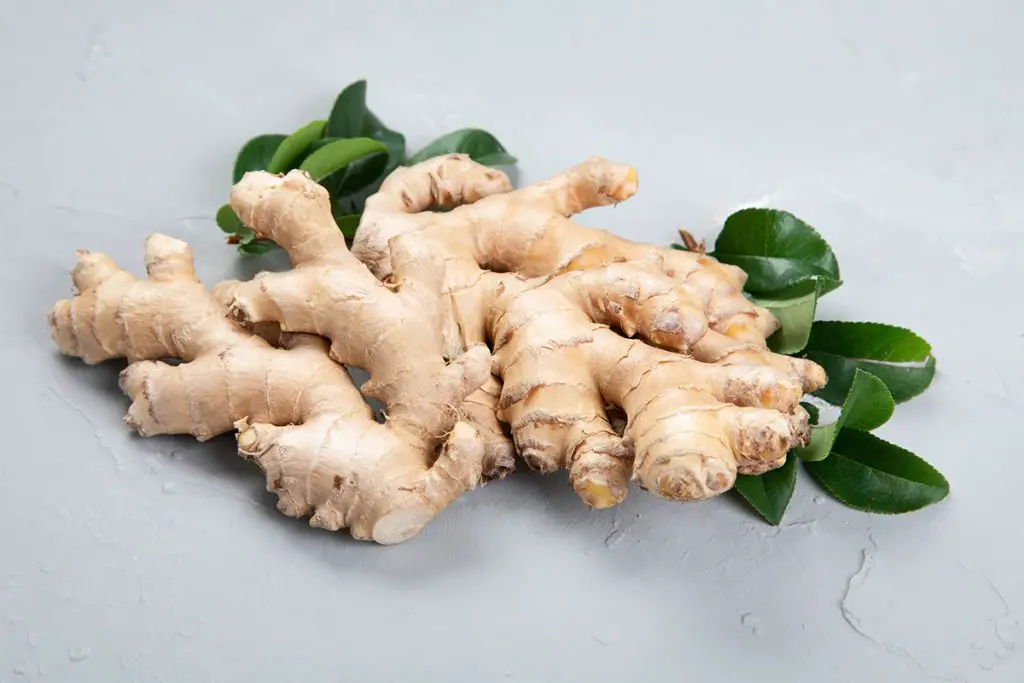
Ginger Can Reduce Infection Risks
Ginger’s antioxidant properties help boost immunity. This plant can aid in inhibiting bacterial and viral growth, significantly reducing the risk of infection. Ginger may also help the immune system overcome existing infections.
Women who struggle with yeast infections may consider adding ginger to their diet.
Ginger Can Help With Weight Loss
A less known health benefit of ginger is its effect on body weight. A study conducted in 2019 found that ginger supplementation yielded significant results in reducing body weight and waist-hip ratio in people with obesity.
However, experts say further studies are necessary to determine the influence of ginger on weight loss.
Ginger Can Reduce Pain From Osteoarthritis
Osteoarthritis involves the degeneration of joints, causing pain and stiffness. Ginger can reduce pain and disability owing to its anti-inflammatory effect. Prolonged inflammation can worsen the degeneration of joints.
By combating inflammation, ginger can slow the progress of the disease and relieve pain and discomfort associated with this condition.
Ginger Can Control Blood Sugar Levels
A study conducted in 2015, with 41 participants suffering from Type 2 Diabetes, found that ginger significantly lowered fasting blood sugar. Although considered a relatively small study, experts are hopeful that further studies will provide more information on the role of ginger in controlling blood sugar levels.
Ginger Can Control Blood Cholesterol Levels
Evidence in both humans and animals shows that ginger can significantly reduce cholesterol levels for LDL (bad) cholesterol and blood triglyceride.
Research continues into the influence of ginger in controlling blood cholesterol levels and its potential to improve cardiovascular health by lowering risks of cardiac diseases.
Ginger Can Treat Chronic Indigestion
Ginger has been found to speed up gastric-emptying. Delayed stomach-emptying is a major cause of functional dyspepsia, indigestion with no known cause. Ginger supplementation has been shown to improve digestion by increasing gastric-emptying time.
Ginger Can Treat Menstrual Pain
Long before there were studies on this subject, women, especially where ginger is natively grown, have been using ginger to treat menstrual pain. However, higher-quality studies are needed to validate the anecdotal evidence.
Ginger may still be helpful even if it doesn’t relieve the cramping. During their period, women generally experience inflammation that contributes to their overall discomfort. Ginger’s anti-inflammatory effects help to relieve some of this discomfort.
Suppose you want to try taking ginger to help you deal with menstrual cramps. Try adding ginger to your tea and make ginger tea!
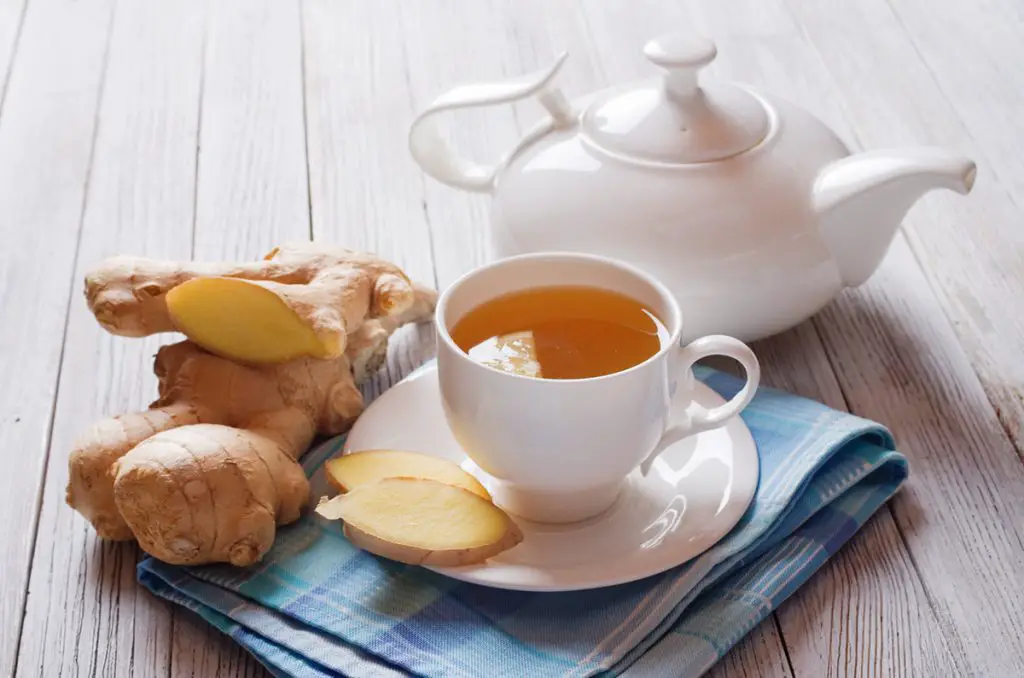
Ginger Can Prevent Neurologic Decline
Oxidative stress and chronic inflammation are known culprits in speeding up the age-related decline and neurologic conditions such as Alzheimer’s.
Ginger’s antioxidant and anti-inflammatory properties help combat the damage caused by oxidative stress and address inflammation, thereby improving neurologic health.
Conclusion
Ginger’s medicinal and culinary value is unquestionable. Incorporating it into our cuisine and diet can make a difference in our health and well-being. Whether you’ll be needing ginger for tea to relieve menstrual pain or as an ingredient in your family dinner, it’s always a good idea to have some ginger on hand ready to use.
By keeping some fresh ginger in the freezer, you can always have some when you need it.


